Foreword In this modern jet age, one can reach any part of the world within a day or less. Although English is widely spoken, it is very helpful to have some knowledge of the language of the country which you are visiting in order to make your trip more enjoyable by communicating with the local people and understanding their culture. Intended for beginners who wish to learn to speak very basic Japanese in just a few hours, this book is written in a clear and simple yet versatile way. With approximately 350 basic words and examples of how they are used in practical conversational speech, one can acquire a fundamental working knowledge of Japanese from this book, so you can express yourself in simple Japanese sentences. This book has several exercises for each lesson.
And, to get acquainted with Japanese culture, the student may enjoy the photos which the author has provided as a visual aid. Complicated grammatical explanations are omitted, since detailed explanations sometimes discourage people from actually speaking. Only the essential points in pronunciation and grammar are given, and the phrases and the sentences are repeatedly presented in each lesson, so that the student can easily learn the phrases and practice using them without hesitancy or discouragement. The author hopes that the tourist as well as the student or prospective foreign resident in Japan, young or old, may find this book a helpful and enjoyable tool in approaching the Japanese language for the first time. Jun Maeda 

LESSON 1
What is this? hai yes iie no nan, nani what s so , exactly! kore-wa this (or these) NOTE : adding -wa at the end of a word emphasizes that it is the primary subject of the sentence. de-wa arimasen is not, are not dess-ka is, are, am
NOTE : (The more formal and correct form is desu-ka but in everyday speech the u in desu is left out).
Adding -ka at the end of a sentence is like adding a question mark and makes the sentence into a question. 
 PHRASES Kore-wa nan dess-ka? What is this? (literally : Thiswhatis?) Kore-wa hon dess, This is a book. (literally : Thisbookis.) Kore-wa empitsu dess, This is a pencil. (literally : Thispencilis.) Kore-wa inu dess. . (literally : This-dog-is.") Kore-wa hana dess. (literally : This-dog-is.") Kore-wa hana dess.
PHRASES Kore-wa nan dess-ka? What is this? (literally : Thiswhatis?) Kore-wa hon dess, This is a book. (literally : Thisbookis.) Kore-wa empitsu dess, This is a pencil. (literally : Thispencilis.) Kore-wa inu dess. . (literally : This-dog-is.") Kore-wa hana dess. (literally : This-dog-is.") Kore-wa hana dess.
This is a flower. (These are flowers.) (literally : Thisfloweris . Kore-wajidosha dess-ka? Is this a car? (Adding -ka at the end makes it a question.) (literally : Thiscaris?) Hai, s dess, . Yes, it is (exactly so). Kore-wa hikki dess-ka? Is this an airplane? (literally : Thisairplaneis?) lie, s de-wa anmasen, No, it is not. , . , .
No, it is not. Kore-wa hana dess-ka? Is this a flower? (Are these flowers?) Iie, s de-wa arimasen. Kore-wa kudamono dess. , No, it is not. (No, they are not.) This is a fruit. , No, these are wooden clogs. , No, these are wooden clogs.
NOTE : In Japanese the same form of a noun or verb can be either singular or plural. The context usually makes clear what is meant. Occasionally, when it is necessary to be quite explicit, a pluralizing suffix can be added to nouns (and is frequently added to pronouns), but it is not essential for the beginner to be concerned about this usage now. EXERCISES Refer to the pictures on the right and fill in the blanks.  1. Kore-wa______________dess.
1. Kore-wa______________dess.
This is a pencil.  2. ______________ jidsha dess. This is a car.
2. ______________ jidsha dess. This is a car.  3. _____________ _____________ dess.
3. _____________ _____________ dess.
This is a book. 


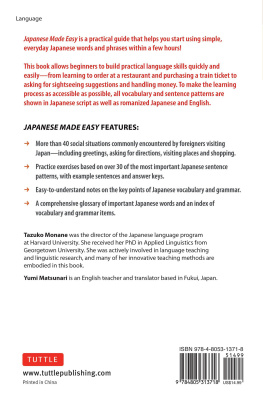


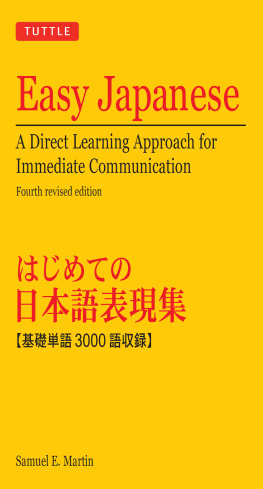

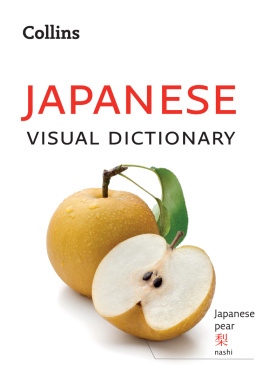

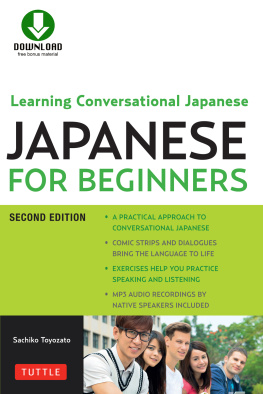


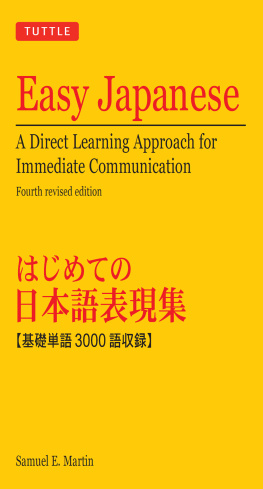

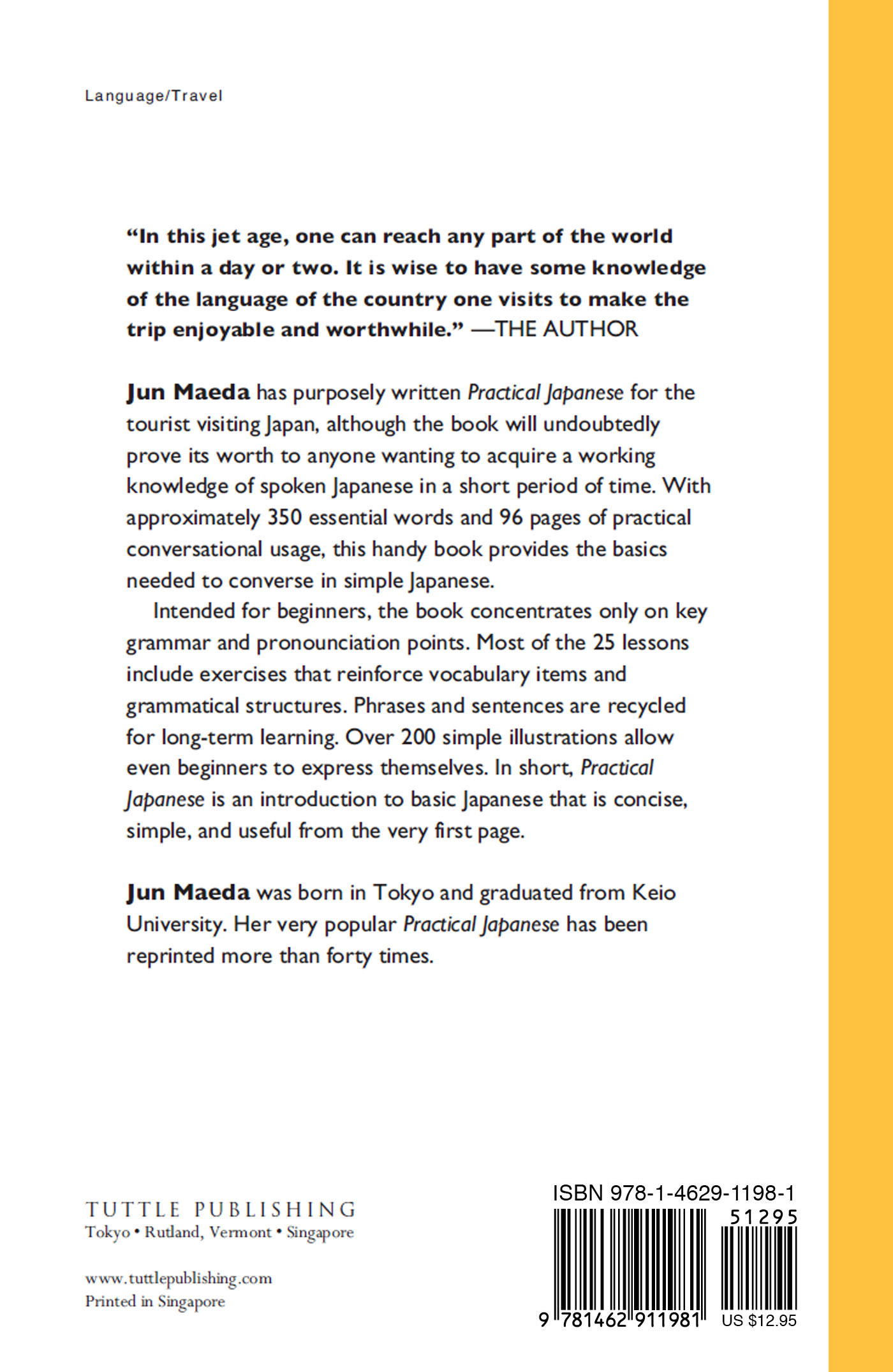




 PHRASES Kore-wa nan dess-ka? What is this? (literally : Thiswhatis?) Kore-wa hon dess, This is a book. (literally : Thisbookis.) Kore-wa empitsu dess, This is a pencil. (literally : Thispencilis.) Kore-wa inu dess. . (literally : This-dog-is.") Kore-wa hana dess. (literally : This-dog-is.") Kore-wa hana dess.
PHRASES Kore-wa nan dess-ka? What is this? (literally : Thiswhatis?) Kore-wa hon dess, This is a book. (literally : Thisbookis.) Kore-wa empitsu dess, This is a pencil. (literally : Thispencilis.) Kore-wa inu dess. . (literally : This-dog-is.") Kore-wa hana dess. (literally : This-dog-is.") Kore-wa hana dess. 1. Kore-wa______________dess.
1. Kore-wa______________dess. 2. ______________ jidsha dess. This is a car.
2. ______________ jidsha dess. This is a car.  3. _____________ _____________ dess.
3. _____________ _____________ dess.